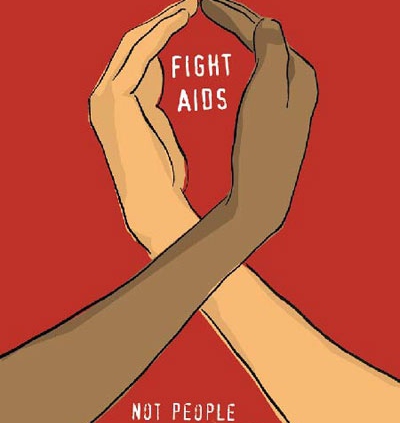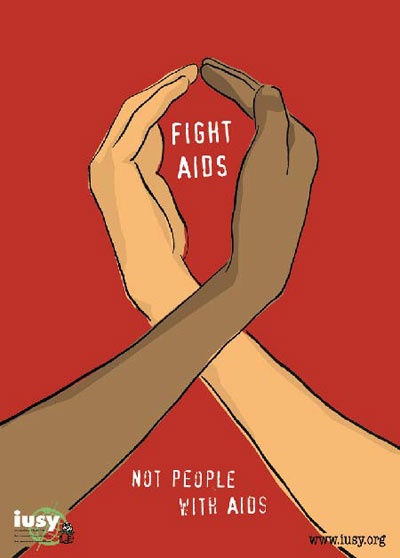World AIDS Day: Human Rights Count!
As we observe World AIDS Day, it is important to be aware that people living with HIV (PLHIV) are victim of human rights abuses, despite available evidence many governments are yet to develop effective strategies to deal with this problem.
The stigma and discrimination associated with PLHIV have “a serious negative impact on prevention efforts and the accessibility and effectiveness of treatment, care and support,” says a report by the Global Network of People Living with HIV (GNP+).
Findings of pilot studies conducted in Kenya, Nigeria and Zambia reveal that “the rights of PLHIV are being violated in various settings with complaints ranging from murder (in one case in Kenya) and torture to discrimination at work; in healthcare facilities and within the family.”
“After being diagnosed and found HIV positive by the health authority my husband sent me away from our matrimonial home,” said a female PLHIV in Kenya.
“I lost my job and my wife deserted me while in Luanshya (town in Zambia) and admitted in the hospital. She hired a vehicle and collected all goods and said we were shifting to a bigger house…After the loss of employment due to my sickness, I had no money and had to sell the remained properties,” added a Male PLHIV in Zambia.
To address this issue, GNP+ initiated Human Rights Count!, an evidence gathering program which documents HIV-related human rights violations against PLHIV. The initiative is the first of its nature to be driven by PLHIV. Information collected are used in advocacy campaigns that aim to raise awareness about these violations and instigate changes at the local and national level.
PLHIV around the world will be able to submit human rights violations in their community, city, and country electronically or by mail. GNP+ works with focal points at regional and national networks of people living with HIV to research, verify and analyze these violations.
GNP+ has developed a structured form used to elicit quantitative and qualitative data regarding the violations, which will be available as an online questionnaire and as a writable PDF. Individuals or networks can also print the questionnaire and fill it out by hand.
By collecting the information through focal points in the region, there will be a strong link to regional and national campaigns. In addition, working through communities of PLHIV will increase the level of understanding of rights and through this empower people to assert their rights. Reporting forms will shortly be available both online and at selected focal points.
The first training of trainers using the Human Rights Count questionnaire took place in Zambia in 2009. Over 20 participants have now returned to the respective towns and villages to train others to use the tools. The project has also been piloted in Kenya, Nigeria, Nepal and Indonesia.






































